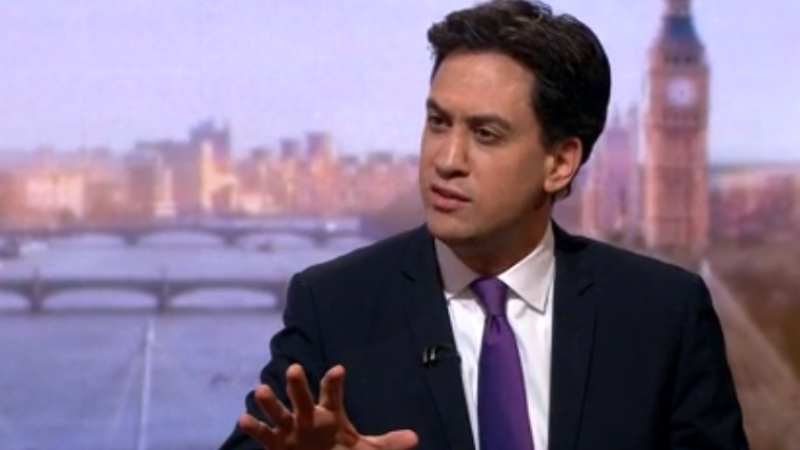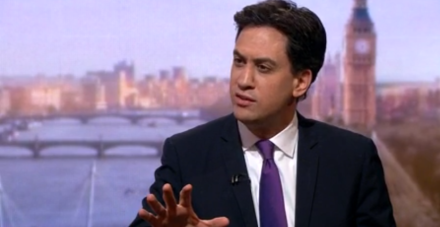

Ed Miliband has written to the UK Statistics Authority, calling for the introduction of a independent Living Standards Index, to measure the success of government in dealing with the cost of living. The figures would be published on a quarterly basis by the Office for Budget Responsibility (OBR) and be given the same status as other trackers, such as GDP.
Miliband believes it is important that living standards for working people are tracked by an independent body to ensure it becomes an economic measure that cannot be ignored by government. The Labour leader said that stagnating wages were also hitting plans for deficit reduction through returning lower-than-expected income tax receipts.
He said the cost of living crisis had “directly contributed to the Government’s failure to clear the deficit with stagnant wages leading directly to reduced tax revenues and higher welfare bills. Income tax receipts have fallen short of their 2010 expectations by more than £68 billion and revenue from National Insurance Contributions by £27.3 billion.”
On the Andrew Marr Show this morning, Miliband said that “we need a better measure of the living standards of working people.” This follows a letter he sent to Sir Andrew Dilnot, chair of the UK Statistics Authority, about his idea for a new index. You can read the full letter here:
Dear Sir Andrew,
I am writing to ask you to consider introducing a new measure of UK living standards.
As you know, there are a range of issues with the way that we currently measure living standards, which mean that the information available to policy makers is not giving a full and up-to-date picture of the living standards of families across the country.
Of particular concern is:
· Current measures of wages miss out on the earnings of the self-employed, who make up an increasing proportion of the labour force.
· As the review of consumer price indices by Paul Johnson that you published this week concluded that “there is an unhelpful proliferation of price indices in the UK at present” and no clear agreement on how best to measure the impact of prices at different levels of the income distribution.
· Several of the existing measures of incomes are significantly lagged, with the most recent family resources survey showing data from 2012/13. Moreover, the measure of incomes published in the national accounts included the incomes of, for example, sports clubs and religious institutions.
Policy makers too often fail to understand and respond to changes in living standards and so we now need a better measure. My view is that key criteria used when developing this should include:
· Timely: a new indicator should be produced at least quarterly, based on data not older than six months. This should allow for discussion on the progress of living standards to reflect what people are actually experiencing.
· Comprehensive: a new indicator should reflect people’s real experience of the economy, including the impact of wages, prices and taxes and benefits on their incomes.
· Meaningful: a new indicator should show the experience of people across the range of the income distribution, and pick up how changes in wages or prices vary for those at the top, middle and bottom.
A future Labour government would use this indicator as the key measure by which we would expect our success to be measured, and I would ask the OBR to forecast this alongside measures of GDP.
We would be grateful if you could consider this issue, and the prospects for a new indicator, swiftly so that future governments can be fully held to account.
Yours sincerely
Ed Miliband




More from LabourList
‘Welfare reforms still mean a climate of fear. Changes are too little, too late’
Welfare bill: Which MPs are still voting against reforms?
‘The tap end is getting hotter – and Welsh Labour might get burned’